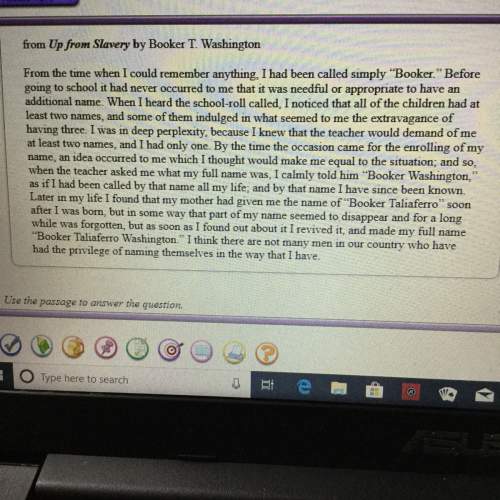
“War Is Kind”
by Stephen Crane
Do not weep, maiden, for war is kind.
Because your lover threw wild hands toward the sky
And the affrighted steed ran on alone,
Do not weep.
War is kind.
Hoarse, booming drums of the regiment,
Little souls who thirst for fight,
These men were born to drill and die.
The unexplained glory files above them,
Great is the battle-god, great, and his kingdom—
A field where a thousand corpses lie.
Do not weep, babe, for war is kind.
Because your father tumbled in the yellow trenches,
Raged at his breast, gulped and died,
Do not weep.
War is kind.
Swift blazing flag of the regiment,
Eagle with crest of red and gold,
These men were born to drill and die.
Point for them the virtue of the slaughter,
Make plain to them the excellence of killing
And a field where a thousand corpses lie.
Mother whose heart hung humble as a button
On the bright splendid shroud of your son,
Do not weep.
War is kind.
“Mending Wall”
by Robert Frost
Something there is that doesn’t love a wall,
That sends the frozen-ground-swell under it,
And spills the upper boulders in the sun,
And makes gaps even two can pass abreast.
The work of hunters is another thing:
I have come after them and made repair
Where they have left not one stone on a stone,
But they would have the rabbit out of hiding,
To please the yelping dogs. The gaps I mean,
No one has seen them made or heard them made,
But at spring mending-time we find them there.
I let my neighbor know beyond the hill;
And on a day we meet to walk the line
And set the wall between us once again.
We keep the wall between us as we go.
To each the boulders that have fallen to each.
And some are loaves and some so nearly balls
We have to use a spell to make them balance:
“Stay where you are until our backs are turned!”
We wear our fingers rough with handling them.
Oh, just another kind of out-door game,
One on a side. It comes to little more:
There where it is we do not need the wall:
He is all pine and I am apple orchard.
My apple trees will never get across
And eat the cones under his pines, I tell him.
He only says, “Good fences make good neighbors.”
Spring is the mischief in me, and I wonder
If I could put a notion in his head:
“Why do they make good neighbors? Isn’t it
Where there are cows?
But here there are no cows.
Before I built a wall I’d ask to know
What I was walling in or walling out,
And to whom I was like to give offence.
Something there is that doesn’t love a wall,
That wants it down.” I could say “Elves” to him,
But it’s not elves exactly, and I’d rather
He said it for himself. I see him there
Bringing a stone grasped firmly by the top
In each hand, like an old-stone savage armed.
He moves in darkness as it seems to me—
Not of woods only and the shade of trees.
He will not go behind his father’s saying,
And he likes having thought of it so well
He says again, “Good fences make good neighbors.”
Which of the following devices does not appear in either poem?
A.
caesura
B.
apostrophe
C.
olfactory imagery
D.
second-person point of view
E.
repetition

Answers: 1


Another question on English

English, 21.06.2019 18:00
Which theme is best supported by the descriptive detail in this passage from my antonia
Answers: 1

English, 22.06.2019 02:00
The following question refers to “the philosophy of composition” by edgar allan poe and on writing by stephen king. what is a key difference in the use of details in the texts? poe’s essay is dominated by facts, while king’s memoir is dominated by images and examples. poe references numerous authors and literary works, while king does not reference any other authors or literary works. poe includes a list of all the poems he has written, while king includes a list of all the books he has written. poe’s essay is full of personal details about his wife and children, while king’s memoir is filled with details about his pets.
Answers: 1

English, 22.06.2019 03:30
1. what is the best example of the use of rhyme? a. the beat of drum b. fresh green grass c. a wild little child d. the kindness of strangers 2. which of the following is always true about a haiku? a. it has one three-line stanza b.it has a specific rhyme scheme of abab c. it uses alliteration d. it expresses thoughts or feelings of a single speaker 3. what is the best example a simile? a. marty’s shout rattled the windows b.her voice was clear as a bell c. he is a bear in the morning d.the blossoms in the garden nodded
Answers: 1

You know the right answer?
“War Is Kind”
by Stephen Crane
Do not weep, maiden, for war is kind.
Because your lover...
Do not weep, maiden, for war is kind.
Because your lover...
Questions





History, 18.04.2020 01:04

Spanish, 18.04.2020 01:04



Mathematics, 18.04.2020 01:04




Computers and Technology, 18.04.2020 01:05


Mathematics, 18.04.2020 01:05

Mathematics, 18.04.2020 01:05


English, 18.04.2020 01:05

English, 18.04.2020 01:05




